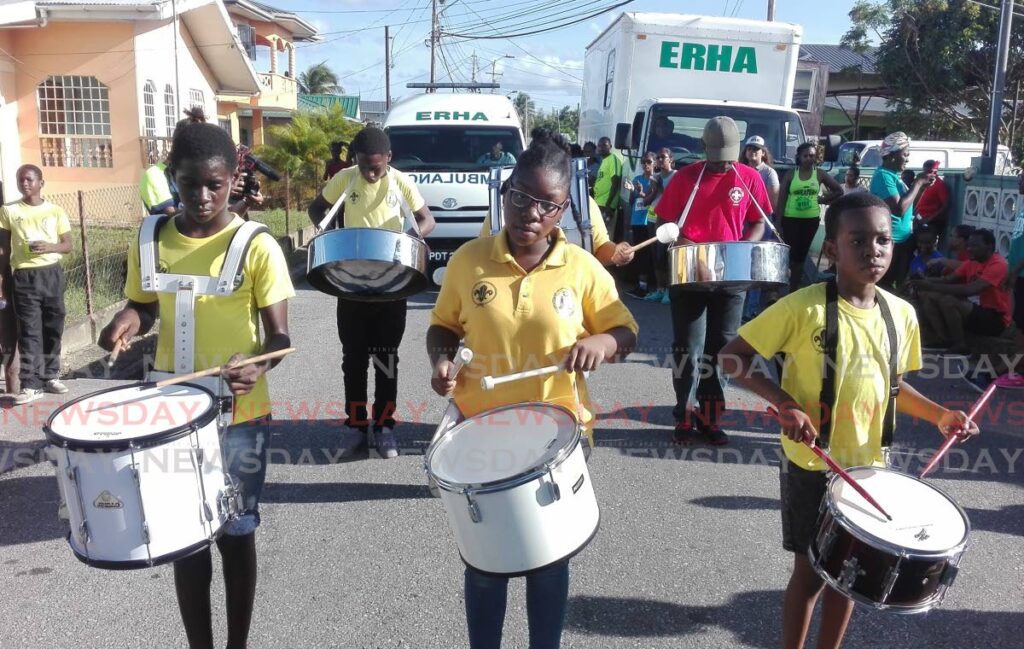Walke Street Freedom Run will assist the youths, says official

DAVID SCARLETT
PRESIDENT of the Walke Street Emancipation Committee, Montsho Masimba, believes that their annual five-kilometre Freedom Run carded for August 1 will help to develop Afro-Trinidadians in the community of Sangre Grande and, by extension, Trinidad and Tobago.
This year marks two decades of the event and Masimba is confident that the 2022 edition will propel the young participating athletes from the area to improve their craft and “keep off the streets”.
“As a 27-year-old committee, we’ve been hosting the Freedom Run for 20 years; we have never missed a year”, he stated. “During the pandemic, we had virtual run and a symbolic run in Sangre Grande (in 2021).”
He continued, “Our aim is to promote people of the diaspora – Africans and others who belong to the (black) community. We develop programmes, seminars, lectures and community-building events in the area (Sangre Grande) to provide productive platforms for the people and keep them off the street.”
Masimba also said that the committee does not only target athletics and sports, but the areas of social work as well. “We associate ourselves with other progressive groups that develop young people, like the National Action Cultural Committee (NACC), who host cultural events such as the youth calypso competition," he said.
“If there is a young person who is interested in music or running, we have the necessary avenues to assist them. It’s all about guiding the youths in a positive direction.”
The Freedom Run takes place on Emancipation Day. Masimba explained the purpose of the run and the significance of hosting it on that particular date.
“When you look back at the proclamation of emancipation, running was a significant part of getting the message across to many communities that were enslaved on the North American continent,” he said.
“There were plantations (stationed) far apart from each other and history shows that some people ran through the day and night to carry the message that slavery was abolished. So, with running being a key part of liberation, we as a committee thought that it was wise to connect distance running where freedom is concerned.”
Masimba also boasted about the cultural events showcasing African art, craft, dance and music on that day, but expressed that he is not certain about the execution of those proceedings due to the covid19 pandemic.
However, the tradition of celebrating two outstanding members of the community will be continued.
“Every year, we honour two people (male and female) who did special work over the years,” said Masimba. “In the past, we awarded persons such as Earl Lovelace, the Boynes family and the Tony family. These are significant people who contributed to the development of the area.”
The Freedom Run will be open to both local and foreign athletes. Over the past six years, international athletes from Kenya, Guyana, Suriname, Jamaica, St Vincent and the Grenadines, and Brazil have competed and dominated the event.
The route is set to begin at Walke Street, through Ojoe Road and Picton Road, and concluded at the race’s starting point.
Last year, Alex Ekesa from Kenya won the male category, and April Francis was the female winner.
However, the committee has decided to change the format of competition to accommodate runners at every skill level.
“There is a slight change in the programme this year,” Masimba stated. “We normally had different (age) categories, but clubs and coaches of young athletes expressed that the fierce competition discouraged those who run for fun, contrary to the professionals competing for the prizes.
“To solve that problem, we will have an open category for the professional and international athletes, and prizes for the recreational athletes. Prizes will be awarded to the winners of the 60-and-over runners (male and female), the oldest male and female, the youngest male and female, the largest team or club in uniform, and we will have special prizes for the disabled.
“We want to encourage people to run for fun and internalise the importance of Emancipation, and its significance to the people of the African diaspora.”
Masimba noted that events like these are important in the process of pushing young people further as the education of Emancipation can help them to appreciate what their parents and ancestors have done for them.
“There is a void between the old and the young, and we need to close that gap by having such events," he said. "‘Long time’, we saw guys on the block, but they were there while waiting for their turn in a 5-a-side football (competition) or waiting for their next game in basketball. Now, when guys are liming on the block… I don’t want to say any more.
"If there are events are spearhead positivity, the youngers will fall into the institutions that will help through scholarships and other means.”


Comments
"Walke Street Freedom Run will assist the youths, says official"